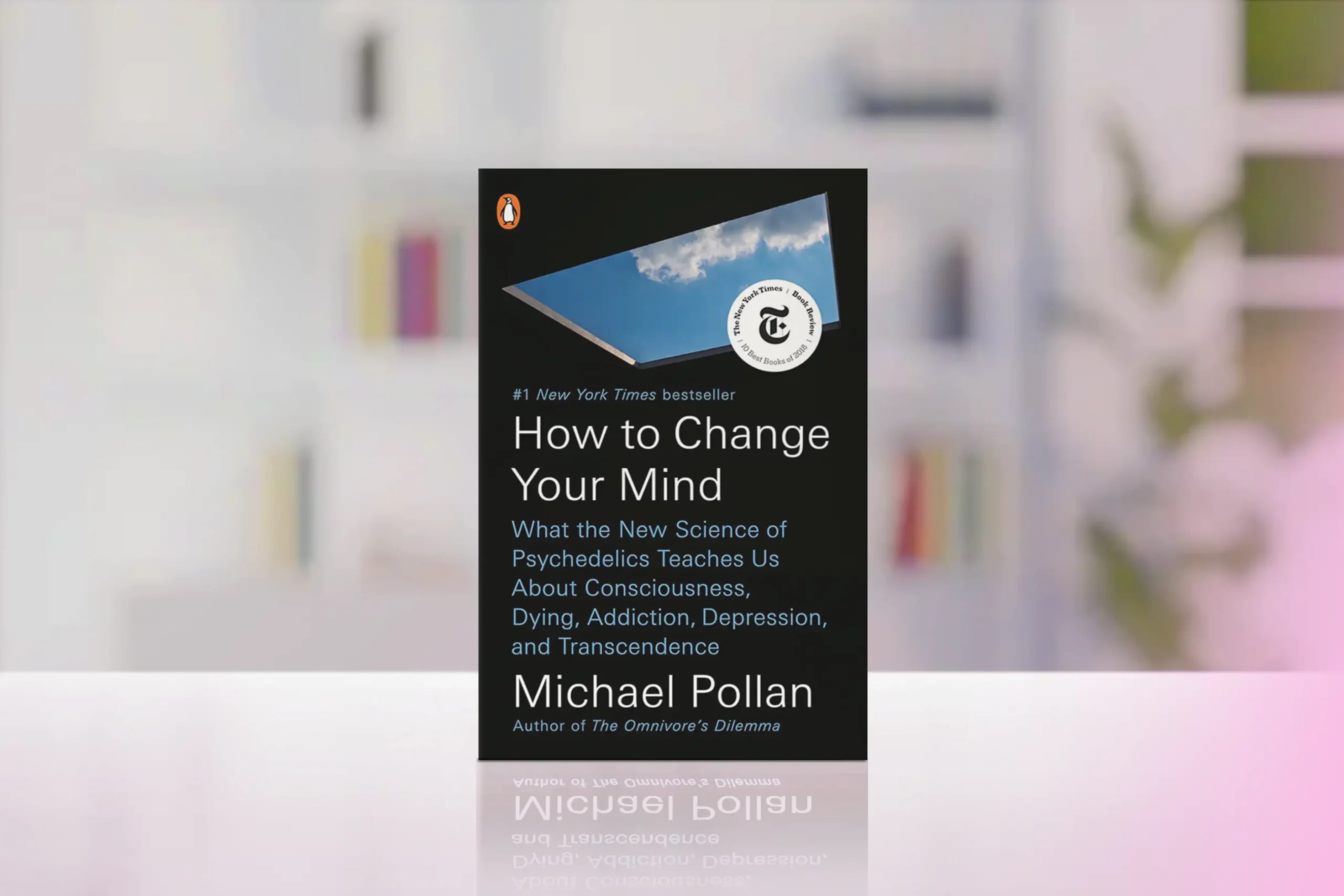Instagram and TikTok’s version of self-care often looks like expensive spa weekends and elaborate wellness retreats. It’s easy to feel like proper self-care requires significant time, money, and energy—three things most of us already lack. But real self-care doesn’t have to be complicated or costly. These 20 micro self-care tips actually make a difference in your daily life—simple practices that take just minutes but genuinely improve your wellbeing.
What makes these practices so effective is how seamlessly they fit into your existing routine. These science-backed, expert-recommended techniques help you feel more centered and balanced without requiring a major life overhaul—just small moments of intentional care woven throughout your day.
Inside this article:
1. Stay Hydrated
Starting your day with a full glass of water isn’t just good for your physical health—it’s a moment of intention-setting that signals to your brain that you’re prioritizing your wellbeing.
Why it’s important: Research published in the Cambridge University Press shows that even mild dehydration can significantly impact mood, energy levels, and cognitive function. Maintaining proper hydration is essential for optimal brain function and overall health. As Dr. Matthew Walker notes in “Why We Sleep”, morning hydration helps jumpstart your metabolism and flush out toxins processed during sleep.
Quick start: Keep a water bottle by your bed and drink it first thing, perhaps with a slice of lemon or cucumber to make it feel special and increase your likelihood of following through.
2. Self-Compassion
Intentionally replacing self-criticism with self-compassion can transform your relationship with yourself over time.
Why it’s important: Dr. Kristin Neff’s research on self-compassion demonstrates that treating yourself with the same kindness you’d offer a friend improves resilience and emotional wellbeing. In “Self-Compassion”, she outlines how harsh self-criticism activates the body’s threat response.
Simple practice: When you notice self-criticism, pause and ask, “What would I say to a friend in this situation?” Then speak those words to yourself.
3. Be Grateful
The simplest gratitude practice can have profound effects: just name three specific things you appreciate right now.
Why it’s important: Research by Greater Good Science Center at UC Berkeley shows that gratitude practices significantly boost optimism, enhance happiness and reduce symptoms of depression and anxiety. In “The Book of Joy”, the Dalai Lama and Desmond Tutu discuss how acknowledging daily gifts shifts our perspective away from what’s missing toward what’s present.
Try this: Keep a small notebook handy and write three bullet points of gratitude when you need a mental reset—be specific about what you appreciate right now.
4. Take a Breath
This simple breathing technique—inhale for 4 counts, hold for 7, exhale for 8—can activate your parasympathetic nervous system in moments of stress or overwhelm.
Why it’s important: Dr. Andrew Weil, who popularized this technique, explains that controlled breathing exercises can lower blood pressure, reduce anxiety, and improve concentration. The book “Breath” by James Nestor details how intentional breathing patterns directly influence our stress response system.
Daily practice: Set a timer on your phone for three practice rounds whenever you feel tension building or need to transition between tasks.
5. Body Reset
Our bodies weren’t designed for prolonged sitting. Brief, intentional stretching can relieve physical tension that accumulates throughout the day.
Why it’s important: According to research, even brief stretching breaks can reduce muscle tension and discomfort associated with sedentary work. Tom Rath emphasizes in “Eat, Move, Sleep” that movement microbreaks boost energy and reduce the negative health impacts of sitting.
Simple move: Set an hourly reminder to stand, reach your arms overhead, and gently twist from side to side for 30 seconds.
6. Workspace Reset
A cluttered desk often reflects (and contributes to) a cluttered mind. Taking five minutes to organize your physical space can create mental clarity. I’ve found that this small habit completely changes how I feel when I sit down to work in the morning. That tiny investment pays dividends in focus.
Why it’s important: Research from Yale University found that physical clutter competes for your attention, decreasing performance and increasing stress. In “Digital Minimalism”, Cal Newport emphasizes how our environment directly impacts our ability to focus.
Try this: At the end of each workday, spend 5 minutes clearing your desk so you can start fresh tomorrow—consider it a gift to your future self.
7. Medicine Music
The right choice of music or playlist can shift your mental state in minutes, whether you need to calm down or energize.
Why it’s important: Neuroscientist Daniel Levitin explains in “This Is Your Brain on Music” that music directly influences brain chemistry, potentially reducing cortisol and increasing dopamine. The book “The Joy of Movement” by Kelly McGonigal highlights how music can make physical activity feel easier and more enjoyable.
Quick tip: Create dedicated playlists for different needs—focus, energy, calm—and use them intentionally for 5-minute mood shifts.
8. Coffee Ritual
The simple act of preparing and mindfully enjoying tea or coffee can become a meaningful, relaxing pause in your day.
Why it’s important: Research found that ritual behaviors around food and drink consumption enhance the experience and satisfaction. In “The Book of Joy”, the Dalai Lama discusses how small rituals create moments of presence in busy lives.
Try this: Set aside 10 minutes to prepare and enjoy your beverage without multitasking—notice the warmth, aroma, and taste with your full attention.
9. Mindful Walking
A brief walk, especially outdoors, can be transformative—particularly when you approach it mindfully rather than just trying to “get steps.”
Why it’s important: Florence Williams explains in “The Nature Fix” that even brief exposure to natural settings reduces stress hormones and improves mood. Research shows that walking increases creative thinking by up to 60%, according to a Stanford University study.
Step away: Step outside for 5-10 minutes without your phone, paying attention to the sensations of walking and what you notice around you.
10. Nature Break
Brief interactions with plants or animals can provide a genuine boost to wellbeing. The plants in my kitchen have survived more stressful weeks than I can count, and those brief moments of plant care have become surprisingly meaningful pauses.
Why it’s important: Studies that interacting with plants reduces psychological and physiological stress. In “The Nature Fix”, Florence Williams describes how living elements in our environment satisfy deep biophilic needs.
Simple tip: Keep a small plant on your desk and take a moment to care for it, or simply observe it closely for a minute when you need a mental break.
11. Meditation Break
A brief guided meditation can provide a mental reset without requiring meditation expertise. I was skeptical about this one until I tried it during a particularly stressful deadline. The simplicity is deceiving—it really does reset your nervous system.
Why it’s important: Research form Johns Hopkins Medicine found that even brief meditation practices can reduce anxiety and stress. In “10% Happier”, Dan Harris describes how short meditation breaks helped him manage workplace stress and improve focus.
Try this: Find a 5-minute guided meditation on any meditation app and use it when transitioning between tasks or when you feel overwhelmed.
Mind reset: Find a 5-minute guided meditation on any meditation app and use it when transitioning between tasks or when you feel overwhelmed.
12. Sensory Reset
When you are overwhelmed feeling stressed or anxious, engaging your senses can quickly bring you back to the present moment.
Why it’s important: Mindfulness expert Jon Kabat-Zinn‘s research shows that brief sensory awareness exercises activate the brain’s relaxation response. In “Mindfulness in Plain English”, Bhante Gunaratana explains how sensory awareness breaks the cycle of rumination.
Try this: Name five things you can see, four you can touch, three you can hear, two you can smell, and one you can taste—a quick grounding technique you can do anywhere.
13. Fresh Aromas
Our sense of smell has direct pathways to the brain’s emotional centers, making aromatherapy a powerful quick intervention.
Why it’s important: Research published in Frontiers in Behavioral Neuroscience confirms that certain scents can reduce anxiety and improve mood. Dr. Rachel Herz explains in “The Scent of Desire” how our olfactory system connects directly to the limbic system, bypassing conscious thought.
Simple tip: Keep a favorite essential oil (like lavender, citrus, or peppermint) nearby and take three deep breaths with it when you need a quick reset.
14. Hand Massage
Our hands hold tension we rarely notice, and a brief self-massage can release physical and mental stress.
Why it’s important: Research shows that even short massage reduces anxiety, promote relaxation and improves mood. In “The Body Keeps the Score”, Bessel van der Kolk explains how physical touch activates the body’s relaxation response.
Try this: Keep lotion at your desk and spend 2 minutes massaging your hands—pay special attention to the space between your thumb and index finger where tension accumulates.
15. Doodle Away
Free-form drawing or doodling allows your mind to wander creatively without pressure or judgment.
Why it’s important: Research found that doodling can improve memory and attention. In “The Artist’s Way”, Julia Cameron explains how creative expression without judgment helps process emotions and reduce stress.
Creative outlet: Keep a small sketchpad handy and spend 5 minutes drawing whatever comes to mind—shapes, patterns, or random lines—without trying to create anything “good.”
16. Read Something New
A brief reading break with something purely enjoyable can provide mental refreshment.
Why it’s important: Research at the Mindlab International at the University of Sussex found that reading for just six minutes reduced stress levels by 68%. In “Digital Minimalism”, Cal Newport emphasizes how cognitive shifts through different types of activities rest overused neural pathways.
Mental escape: Keep a book or magazine of short pieces nearby and read one article or a few pages when you need a mental break from work.
17. Brain Dump
Writing down everything on your mind—without trying to organize it—can clear mental space and reduce anxiety.
Why it’s important: Research published by Cambridge University Press shows that expressive writing improves both mental and physical health. In “Getting Things Done”, David Allen describes how capturing thoughts on paper reduces the “cognitive load” that contributes to stress.
Easy method: Keep a notebook handy and spend 5 minutes writing everything on your mind, without judging or organizing—just get it all out.
18. Social Connection
A quick message to someone you care about creates a moment of social connection that benefits both of you.
Why it’s important: Harvard’s longest-running study on happiness, explored in “The Good Life” by Robert Waldinger, found that quality relationships are the strongest predictor of wellbeing. In “The Body Keeps the Score”, Bessel van der Kolk explains how social connection helps regulate our nervous systems.
Relationship boost: Send a specific appreciation text to someone—not just “How are you?” but “I was just thinking about the time we…” or “I appreciated when you…”
19. Just Dance
A quick dance break releases tension, boosts endorphins, and brings joy in just minutes.
Why it’s important: Research from the University of Sydney found that even brief dance movements reduces anxiety, depression, and emotional distress while enhancing motivation, social cognition, and memory. Kelly McGonigal explains in “The Joy of Movement” how rhythmic physical activity creates “collective effervescence”—a natural high.
Fun time: Create a “dance break” playlist of songs that never fail to make you move, and take a 3-minute dance break when energy is low or stress is high.
20. Quiet Time
In our noise-filled world, even brief periods of complete silence can be profoundly restorative. This one feels almost impossible at first—your mind will resist. Start with just one minute if three feels too long.
Why it’s important: Research published in Frontiers in Psychology confirms that exposure to silence significantly increases relaxation and improves mood by reducing stress-related illnesses. In “How to Do Nothing”, Jenny Odell discusses how auditory breaks are essential for mental processing and restoration.
Try this: Find a quiet spot (or use earplugs), set a timer for 3 minutes, and just sit with the silence—no music, no guided meditation, just quiet.
The Cumulative Power of Micro Self-Care
These practices create sustainable improvements through their cumulative effect. As Dr. BJ Fogg explains in “Tiny Habits”, small actions performed consistently rewire our neural pathways, making wellbeing automatic rather than another task on our to-do list.
Which of these micro self-care practices might fit naturally into your day? Instead of trying all twenty, choose just one that resonates and practice it daily for a week.
Related Reading:
- The Science of Wellbeing: How Positive Psychology Can Transform Your Life
- Building a Wellbeing Routine: Habits for Mental and Physical Health
- Emotional Wellbeing: Managing Stress, Anxiety, and Burnout
- Mindfulness and Meditation for a More Balanced Life
- The Mind-Body Connection: Aligning Physical and Mental Health





